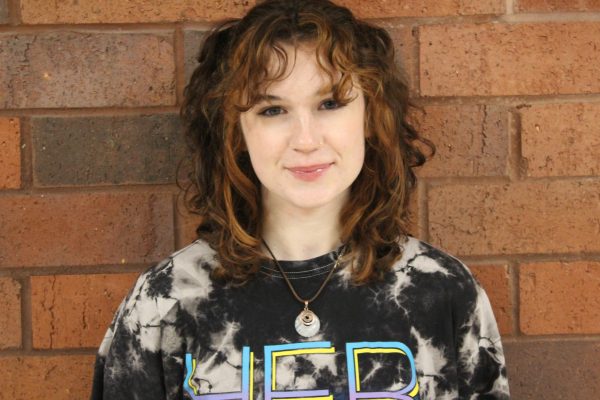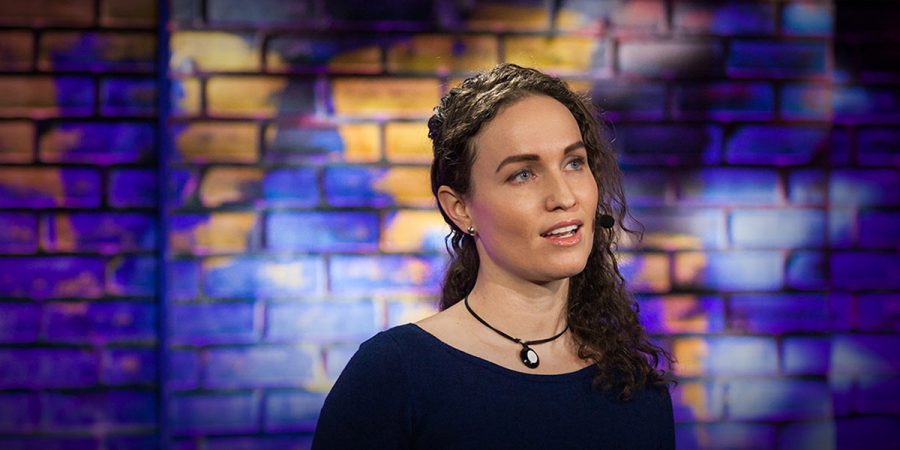A conversation about free speech with Megan Phelps-Roper
UWEC hosts Megan Phelps-Roper on March 8 as a speaker
On March 8, the UW-Eau Claire campus hosted speaker Megan Phelps-Roper. The event was coordinated through the Menard Center for Constitutional Studies and took the form of a conversation followed by audience questions.
The Menard Center is an organization on campus that aims to better understand free speech and the constitution according to the program coordinator for the Menard Center, Phillip Rechek.
“The Menard Center has been around for a few years,” Rechek said. “We are a center within the university focused on both federal and state constitutions. Our focus is on first amendment rights and working with students to increase their knowledge on that.”
The Menard Center, alongside the university, hosts speakers who may challenge students or exemplify certain aspects of first amendment rights, according to Rechek.
“There are a lot of great speakers and opportunities that are on campus that I think everyone should try to take advantage of,” Rechek said. “We bring in world-class speakers from a bunch of different agencies.”
Hosting speakers like Phelps-Roper is essential to the mission of the Menard Center, according to assistant professor of political science, Adam Kunz. The event on March 8 was held conversation-style between Kunz and Phelps-Roper.
“Even if you don’t agree with Megan or the kinds of speakers that the Menard Center has, it is a great opportunity to say ‘alright this is a chance to listen to someone that I wouldn’t normally listen to and to deal with a thought that maybe I am uncomfortable with,’” Kunz said.
Phelps-Roper has been a prominent spokesperson for civil discourse. Taking part in important public conversations is essential to understanding others and oneself, according to Phelps-Roper.
“For me, having these conversations in public has been one way that I have processed my own upbringing,” Phelps-Roper said. “Hearing other people’s experiences has absolutely informed my thinking on a lot of things.”
“I think that being willing to have hard conversations and to be asked hard questions has really shaped my mind in a lot of ways,” Phelps-Roper said. “I know what it is like to be in a place where I couldn’t consider different ways of seeing things. I want to know what leads people to different ways.”
Phelps-Roper recently worked on a podcast titled The Witch Trials of J.K. Rowling in which she utilizes her ideas surrounding the importance of civil discourse within the lens of Rowling’s controversies and opposing opinions to said controversies, according to Phelps-Roper.
“J.K. Rowling has been the subject of these two major backlashes over the course of her career,” Phelps-Roper said. “In the late ‘90s and early 2000’s, it was from the Christian right and now it is from an entirely different group.”
After looking into the controversies, her interest in Rowling was sparked, according to Phelps-Roper.
“We wanted to investigate. What are the parallels? What are the differences? What is it about this woman and her beliefs and the way that she expresses them that has maybe elicited these backlashes? It started out as a form of curiosity,” Phelps-Roper said.
The podcast, which currently has four of seven episodes released, discusses all angles of the difficult conversations regarding sex and gender. Angles which may not have been previously acknowledged due to the lack of nuance on social media, according to Phelps-Roper.
“There is not a lot of room for nuance and that is very distorting,” Phelps-Roper said. “I thought it was important to try to understand where people were coming from. I think that one of the things that happens on social media, in particular, is that context gets flattened.”
The discourse surrounding Rowling and her views was not spared the “flattening” effect of social media, according to Phelps-Roper
“I think in this instance of the conversation of sex and gender, it happens on all sides. people with views like J.K. Rowling, these so-called gender-critical views, and then also trans activists. Neither side is a monolith,” Phelps-Roper said.
According to Phelps-Roper, she recognizes conversations like these are important to our society and its ability to function.
“In the absence of conversation what we are left with is force and violence,” Phelps-Roper said. “I think sometimes in our attempts to protect people from hard conversations, we forget that those alternatives are actually worse.”
In order to avoid serious consequences which can stem from a lack of civil discourse, we need to create a culture of open dialogue, according to Phelps-Roper.
“I think what makes (questioning your beliefs) so important is that it is easy to forget as we live our day-to-day lives that there is so much outside of our awareness and our experience that can and should change our positions,” Phelps-Roper said.
“We can, as humans, be very resistant to change and experiences that conflict with our understanding of the world,” Phelps-Roper said. “I think that if we can encourage a culture of being open to those things then that is one way we can counter our own biases and groupthink.”
The Menard Center is open to many speakers and ideas in order to further the conversations, according to Kunz.
“We are so excited to do more events like this and to keep pushing and growing,” Kunz said. “We would love the campus and the students to support us in this endeavor. If you have ideas and things you would like in terms of programming, if you have questions, reach out to us.”
Becker can be reached at [email protected].

Charlotte Becker is a second-year social studies education student and this is her third semester on staff. She loves taking photos in her free time, as well as reading and thrifting.

